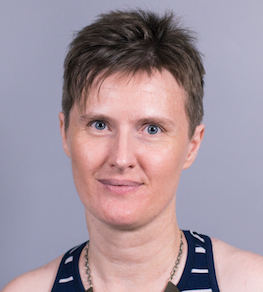Miyanda Maimbo Katiwa was determined to launch Zambia’s first HR business. At home in Zimbabwe, she boldly quit her job, climbed into her car, and made the journey to Zambia. All she had was a fierce determination to help the many Zambians who badly needed jobs, but lacked the connections to get them. From the outset, her story was one of service. She believed in the value of her idea.
When she arrived in Zambia, she had so little money that she spent her first weeks sleeping on a bare floor, with no hot running water, and eating only bread. In the meantime, she typed her proposals at an internet café. “I pounded the streets every day,” she said when explaining on Beyond Limits with Faith Musonda how she’d grown her business. She would open the phone directory and get the numbers of the companies she wanted to approach, then she’d make the calls.
She spoke to people who said her idea wouldn’t work. This wasn’t the beginning she’d hoped for.
“What was going through my mind had nothing to do with excitement,” Katiwa told Faith Musonda. She was afraid, but like a true hero, she didn’t back down. She wanted equal opportunities for all Zambians and believed her break would come. “I don’t believe in impossibilities,” she said.
Her challenges didn’t end with that bare floor, however, which she had to endure for a while. She had to promote herself and her business, and it quickly became clear that calling herself a consultant wouldn’t fly. “One of the things I tell people,” she explained, “is when you open your mouth, how credible are you?” She learned to present herself authentically.
Her company ProSoft eventually grew successful. But before it really took off, Katiwa’s narrative was to take another shocking turn.
One day, she got home to find that her house had burned down to the ground.
And the way she responded was extraordinary.
____
Richard Bistrong seemed to have it all. He was an international sales vice president who, in his own words, focused on “the never-ending want and accumulation of material things.” Because of the lifestyle he was living, he began to focus less on his close relationships and more on wealth and power. Bistrong bravely tells the story of how, as part of a larger web of corruption, he bribed foreign officials and, when caught, covertly helped international law enforcement understand how bribery and trade violations occurred on the front-lines of international business. He hoped this collaboration would save him from prison.
It didn’t.
One thing that strikes me about Richard Bistrong is how accountable he is for his actions. “I never thought of myself as a fall guy or having been thrown under the bus,” he writes in CEP Magazine, “which allows me the freedom to share my story, to be vulnerable and transparent….” Had he not truthfully owned his narrative, he’d have scuppered his future successes. But when he turned up in federal prison to serve his fourteen and a half months, all he knew was a deep sense of shame.
He couldn’t yet see the hero in him. But still, he acted with humility.
With his cellmates, he knew not to crow about the titles and possessions he’d owned. Instead, he asked them, early on, where he could find the mop. He wanted to clean the cell, he told them—a move that swiftly won their respect. He learned what to do, what not to do, what to say and to whom. But he missed his family terribly. And, as he explains on his blog, remorse and regret were his “constant companions.” But another matter haunted him: What would become of him once he was free?
Fortunately, the Federal Bureau of Prisons allows inmates to receive books by mail, direct from the publisher or distributor.He took full advantage. “I can still remember the excitement when I heard over the prison loudspeaker system, ‘Bistrong, package,’ knowing it was my weekly book delivery,” he explains. For Bistrong, those books helped to keep him going, and one, in particular, changed the course of his life: Dorie Clark’s Reinventing You.

____
Loss of privilege is a part of many stories. Cinderella is poor and abused. Harry Potter is shunned and neglected. Even Scrooge, in all his wealth, is arguably as lonely as he is mean. Back when I was teaching storytelling classes, we used to begin with the notion of crisis. Without a crisis, there can be no story—and also no hero.
When Miyanda Maimbo Katiwa saw that her house had been burned down, her response was heroic. She was devastated, of course, as any great hero would be. But instead of canceling her scheduled client training—which I’m pretty sure is what I’d have done—she decided to use the little money she had to buy a change of clothes before climbing into her car and setting off to that scheduled meeting. The way she saw it was that she had a responsibility to her client.
As she tells her story, Katiwa says, “You get to a point where you think that you’ve got it. Everything is happening the way it should. You’ve started to rise above everything. And everything is just taken away from you.” But she bravely understands the importance of conflict to any life story: “Unless you fall off the bicycle, you will really never know what it feels like to ride.”
Likewise, Richard Bistrong could have spent his prison sentence dwelling on his past mistakes. Instead, he used his book a week to keep himself going. “I began feeling the beginnings of optimism,” he says at the FCPA blog, “as I read Dorie’s challenge to draw ‘on every part of your personal experience to create your next professional identity,’ which she calls ‘the story that only you can tell.’” He adds that Clark’s book also braced him for a transition that might be “harsh, abrupt and shocking, and the only explanation you can offer is the truth” and that “something powerful has changed in you.”
Today, Bistrong is a success. And he never fails to be open about his story. In fact, I’ve often seen him leading with his story’s conflict. Even the first lines of his LinkedIn profile say, “I bribed foreign officials, cooperated with international law enforcement & went to prison. Today, I share that front line experience for the benefit of others who confront overseas corruption risk in the field, & for those compliance professionals & practitioners tasked with helping them to manage risk.”
This is, in my mind, impressive.
If you look Bistrong up, you’ll see that he tells his story openly. And the work he does is vital. It transforms his past mistakes into the roots of empowerment. Bistrong, according to Clark’s preface to the new version of Reinventing You, is “one of the examples that makes me proudest.” And it’s easy to see why.
As a storyteller, I know this much: Where you’ve been is usually less important than how you act now. Your past may give you your conflict, but your present can sow the seeds of triumph. Whether you’re Scrooge or Cinderella, you can be the hero. If you act responsibly, in spite of past events, and follow your truth, your story will shine.
Check out the “Beyond Limits” video interview with Miyanda Maimbo Katiwa (parts one, two, and three), which is the source of her story for this article. I also recommend Richard Bistrong’s website and articles.
Featured image: Jerry Burke via Creative Commons


